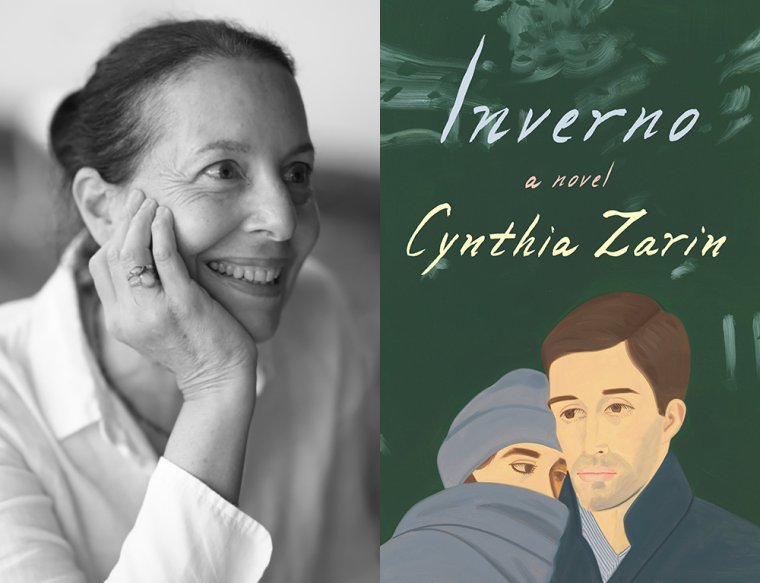This week’s installment of Ten Questions features Cynthia Zarin, whose debut novel, Inverno, is out today from Farrar, Straus and Giroux. In this psychologically driven narrative, a woman named Caroline awaits a phone call from her beloved, a man named Alastair. Meanwhile the personal history of each and their passionate but difficult relationship unfolds over several decades. The passages move associatively, contemplating the changes that have taken place over the years, both in the larger world and in Caroline’s and Alastair’s singular and twined existences. Inverno is also a kind of ghost story, as present-day Caroline stands waiting for Alastair’s call in the same spot in Central Park he had roamed as a teenager. The book offers a moving meditation on space, time, and the strange crossings of paths and separations that occur over the course of a life. In the New York Times, Sigrid Nunez praises Inverno’s “elegance and incantatory prose.... The narrator has a riveting, lyrical voice and a deliberately digressive but expertly controlled style.” Cynthia Zarin is the author of five books of poetry, including Orbit (Knopf, 2017), as well as five books for children and two essay collections, including An Enlarged Heart: A Personal History (Anchor, 2013). She teaches at Yale University and lives in New York City.

Cynthia Zarin, author of Inverno. (Credit: Sara Barrett)
1. How long did it take you to write Inverno?
I began writing what would become Inverno about ten years ago. It started as a letter, and then, over a great while, it became a book.
2. What was the most challenging thing about writing the book?
I think finding out that it was, indeed, a book! And then, after that, to figure out the structure of the novel and how to chronicle Caroline’s experience in a way that a reader could move with her back and forth in time.
3. Where, when, and how often do you write?
I try to write in the morning but my schedule is peripatetic, which means that I find time when I can.
4. What are you reading right now?
Right now I’m reading a marvelous, musical book by Alan Garner called Treacle Walker, about the friendship between a boy with a lazy eye and a rag-and-bone man. Also reading The Order of Time by the Italian physicist, Carlo Rovelli, given to me by a student who knows these questions [about physics] interest me.
5. Which author or authors have been influential for you, in your writing of this book in particular or as a writer in general?
That would be a very long list. I spent almost all of my childhood and adolescence simply reading, and I am sure that almost everything I’ve read has influenced my work. For Inverno in particular, Hans Christian Anderson, Ibsen, Faulkner, Montale—the list goes on. I am admirer of Natalia Ginzburg and Elizabeth Hardwick. But the list is infinite.
6. What is one thing that surprised you during the writing of Inverno?
That it was a book, after all! And that many people seem to find their own experiences in Caroline’s predicament.
7. What is one thing your agent or editor told you during the process of publishing this book that stuck with you?
I think that, simply, my agent thought it was a novel: During the time these pages were taking shape, we drew a picture of the structure of the book on a napkin in a London restaurant.
8. If you could go back in time and talk to the earlier you, before you started Inverno, what would you say?
It is a mistake to think you know what you are doing.
9. What forms of work, other than writing, did you have to do to complete this book?
A portion of the book, if not all of it, occurs when Caroline is waiting for a phone call in Central Park, in the snow. I learned a good deal about the history of the telephone while writing the book, which is really a window into the history of communication.
10. What’s the best piece of writing advice you’ve ever received?
Start with what interests you, and keep going.







